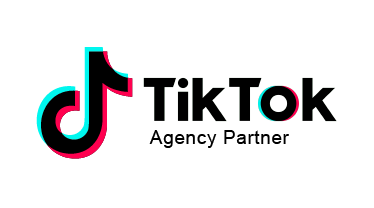What Malaysian SMEs Should Prepare For in 2025
As 2025 approaches, Malaysian SMEs face a rapidly evolving business landscape, influenced by technology, changing consumer behaviours and economic shifts. SMEs in Malaysia play an important role in the economy, contributing to over 37% of the GDP and employing a significant portion of the workforce. To remain competitive and seize growth opportunities, SMEs must stay informed about the trends and challenges that await. This article explores key trends and preparations that can help Malaysian SMEs thrive, supported by relevant SME statistics and insights into the SME sector.
Table of Contents
Understanding the Current State of Malaysian SMEs
According to recent SME statistics, Malaysian SMEs comprise more than 97% of all businesses in the country, encompassing retail, manufacturing, and services. However, SMEs are increasingly challenged by factors such as global economic uncertainty, the need for digital transformation, and rising competition. Preparing for these challenges will be essential to maintain resilience and growth in the coming years.
The SME sector in Malaysia has already shown strong adaptability, with many businesses shifting towards digitalisation and innovation. Yet, there is still a gap in technology adoption among some SMEs, which could hinder growth potential if not addressed promptly. SMEs must also prepare for evolving customer expectations, especially as more consumers turn to online channels and demand personalised experiences.
Key Business Trends to Watch in 2025
2025 is set to introduce new trends that will shape the SME business Malaysia landscape. Here are a few significant ones:
1. Increased Digital Transformation and Automation
Digitalisation continues to be a key trend for SMEs. In a 2023 survey, over 40% of Malaysian SMEs reported investing in digital tools to enhance productivity and customer engagement. By 2025, digital transformation will likely become even more essential, with automation playing a bigger role in business processes. This trend encompasses everything from using software to streamline inventory management to automating customer service through AI-powered chatbots.
SMEs should focus on assessing their current digital capabilities and identifying areas where technology can improve efficiency. Adopting automation not only reduces manual workloads but also enables SMEs to respond faster to customer needs and market demands.
2. Emphasis on Sustainable Practices
Sustainability is becoming a priority worldwide and Malaysia is no exception. Consumers and investors are increasingly leaning towards businesses that demonstrate environmental and social responsibility. In 2025, sustainable practices will likely become a differentiator for SMEs, especially those in retail, manufacturing and food industries.
SMEs should consider implementing eco-friendly practices, such as using recyclable packaging, reducing waste, or sourcing materials responsibly. Not only can sustainability help SMEs align with consumer values, but it may also present cost-saving opportunities in the long term. Building sustainability into the brand image can improve reputation and customer loyalty.
3. Focus on Customer Experience and Personalisation
Customer experience is expected to be an important competitive factor in 2025. Today’s consumers prefer personalised and seamless experiences and SMEs must adapt to meet these expectations. According to recent data, more than 60% of consumers are willing to pay extra for a better experience, which creates an opportunity for businesses to differentiate themselves through customer service and engagement.
For SMEs, this means leveraging data analytics to understand customer preferences and tailoring services or products accordingly. Personalisation could range from targeted marketing campaigns to offering customised products or rewards. Providing a unique customer experience can help SMEs stand out in a crowded market.
4. Greater Emphasis on Data Privacy and Cybersecurity
As businesses become more digital, concerns around data privacy and cybersecurity are expected to grow. With stricter data protection regulations being implemented globally, SMEs in Malaysia will need to ensure compliance to avoid fines and maintain consumer trust. Cybersecurity measures, such as firewalls, encryption and employee training, are essential to safeguard sensitive data and prevent cyber threats.
Investing in data protection not only protects SMEs from potential breaches but also builds consumer confidence. Consumers are more likely to do business with companies that take their data security seriously, especially in e-commerce and online services.
How Malaysian SMEs Can Prepare for 2025
Given the emerging trends and challenges, SMEs can take several proactive steps to prepare for 2025. Here are actionable recommendations for SME businesses in Malaysia to stay competitive and resilient:
1. Invest in Technology and Digital Skills
To keep pace with digital transformation, SMEs should invest in the right technology and equip their workforce with digital skills. This might include training employees in data analytics, e-commerce management or digital marketing. Grants and government programmes are available to help Malaysian SMEs fund technology investments, making it easier for businesses to stay technologically advanced.
2. Develop a Sustainability Strategy
With sustainability becoming increasingly important, SMEs should create a roadmap for integrating eco-friendly practices. Start by assessing your business’s current environmental impact and setting realistic sustainability goals, such as reducing energy consumption or waste. This strategy can be gradually implemented over time, helping SMEs become more socially responsible and appealing to eco-conscious customers.
3. Prioritise Customer-Centric Strategies
Understanding and catering to customer needs is essential. SMEs can gather insights through customer feedback, surveys, and social media engagement to identify areas for improvement. Developing a customer loyalty programme or offering tailored promotions can improve customer retention and attract new clients. The more a business can tailor its services to individual preferences, the more likely it is to stand out.
4. Strengthen Cybersecurity Measures
As digital transactions grow, securing customer and business data is critical. SMEs should consider consulting with cybersecurity experts or investing in security tools like antivirus software, encryption and secure payment gateways. Additionally, providing staff training on identifying phishing attacks and practising safe online behaviour can significantly reduce risks. In an age where data breaches are prevalent, strong cybersecurity practices help maintain trust.
Staying Ahead of Business Trends in 2025
For Malaysian SMEs, the key to staying ahead lies in anticipating changes and being adaptable. By focusing on digital transformation, sustainability and customer-centric practices, SMEs can better meet the demands of a competitive market. The SME sector in Malaysia is resilient and with the right preparations, businesses can turn challenges into opportunities.
At Primal, we specialise in helping SMEs navigate change, from digital marketing to customer experience strategies. Whether you’re looking to enhance your online presence or improve your customer engagement, we’re here to support you every step of the way.
Are you an SME who wants to stay ahead of business trends in 2025? As one of the top SEO agencies in Kuala Lumpur, we’re here to help you prepare your business to handle evolving trends, technologies, and consumer behaviours in the digital marketing sphere. Contact us today to learn more.










Join the discussion - 0 Comment